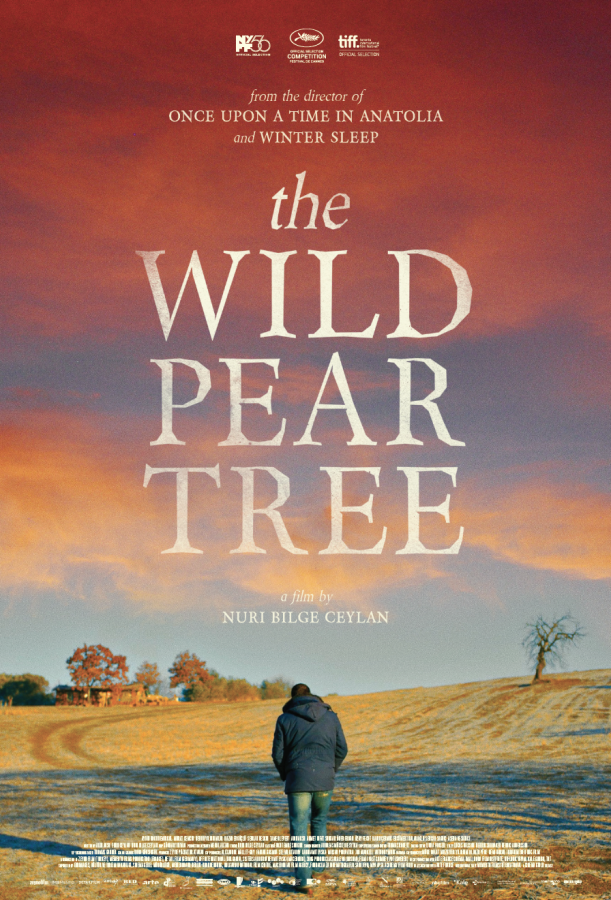Nuri Bilge Ceylan’s newest film, “The Wild Pear Tree,” follows the post-college encounters of an aspiring writer, Sinan, after he returns home hoping to gather enough money to publish his first novel. The film becomes a collage of his prolonged interactions with relatives, old friends and various townspeople that gradually reveal a medley of philosophies on relationships, politics, economics, religion and literature.

Sinan is the embodiment of a 21st century millennial — young, curious, ambitious and irremediably proud. He seeks out his father, mother, childhood crush, an accomplished author whom he admires and the imam of his local mosque to discuss and debate the current state of Turkey and all aspects of life, often unintentionally — and provocatively — voicing his own opinions. He has no qualms about challenging the views of the older generation, which he regards as outdated, senseless and beneath his own enlightenment. His scorn for the ways of life in this small town is evident in his every word, though he denies it whenever he is accused of sitting atop a high horse or being too young and naive.

Here lies the irony that Ceylan so brilliantly brings out in the film. Sinan, after attending college in Çanakkale, is back in his hometown despite claiming he loathes it, believing that his own moral and artistic pursuits are far beyond the limits of the town. Furthermore, he insults the accomplished local author and believes his own debut novel will resonate with the community. Instead, his romantic musings end up unpopular and neglected. He also criticizes the idle lifestyle of his father but fails to see that the two of them share the same appreciation for the finer things in life.
Repeatedly, Sinan is struck down by the realities of his surroundings, but for most of the film, he believes that his ideas are unacknowledged because the townspeople are too obtuse. He refuses to see that his own inexperience — his young, narcissistic idealism — forbids it. Instead, he endlessly complains about the world that never seems to change for the better. The patient, knowing smiles of the older adults in the face of Sinan’s tirades are more than enough to show the disparity between the two generations.

as Hatice in ‘The Wild Pear Tree’. (Courtesy of Cinema Guild)
Ceylan explores this disparity through conversations. “The Wild Pear Tree” is saturated with lengthy dialogues; the viewer must pay attention to every word in order to interpret for themselves what the film ultimately hopes to convey. Or perhaps, it isn’t trying to say anything at all, as the message has already been stitched into the everyday philosophies of these townspeople, in Sinan’s tireless ponderings and, through it all, in the richly colored and photographic long shots that force us to examine the unseen and undervalued in life.
Email Chelsea Cheng at [email protected].

























































































































































